- Home
- P. G. Wodehouse
Very Good, Jeeves Page 5
Very Good, Jeeves Read online
Page 5
The only really difficult part of the campaign was to get rid of the office-boy; for naturally you don’t want witnesses when you’re shoving bags of flour on doors. Fortunately, every man has his price, and it wasn’t long before I contrived to persuade the lad that there was sickness at home and he was needed at Cricklewood. This done, I mounted a chair and got to work.
It was many, many years since I had tackled this kind of job, but the old skill came back as good as ever. Having got the bag so nicely poised that a touch on the door would do all that was necessary, I skipped down from my chair, popped off through Sippy’s room, and went into the street. Sippy had not shown up yet, which was all to the good, but I knew he usually trickled in at about five to three. I hung about in the street, and presently round the corner came the bloke Waterbury. He went in at the front door, and I started off for a short stroll. It was no part of my policy to be in the offing when things began to happen.
It seemed to me that, allowing for wind and weather, the scales should have fallen from old Sippy’s eyes by about three-fifteen, Greenwich mean time; so, having prowled around Covent Garden among the spuds and cabbages for twenty minutes or so, I retraced my steps and pushed up the stairs. I went in at the door marked Private, fully expecting to see old Sippy, and conceive of my astonishment and chagrin when I found on entering only the bloke Waterbury. He was seated at Sippy’s desk, reading a paper, as if the place belonged to him.
And, moreover, there was of flour on his person not a trace.
‘Great Scott!’ I said.
It was a case of the sunken road, after all. But, dash it, how could I have been expected to take into consideration the possibility that this cove, head master though he was, would have had the cold nerve to walk into Sippy’s private office instead of pushing in a normal and orderly manner through the public door?
He raised the nose, and focused me over it.
‘Yes?’
‘I was looking for old Sippy.’
‘Mr Sipperley has not yet arrived.’
He spoke with a good deal of pique, seeming to be a man who was not used to being kept waiting.
‘Well, how is everything?’ I said, to ease things along.
He started reading again. He looked up as if he found me pretty superfluous.
‘I beg your pardon?’
‘Oh, nothing.’
‘You spoke.’
‘I only said “How is everything?” don’t you know.’
‘How is what?’
‘Everything.’
‘I fail to understand you.’
‘Let it go,’ I said.
I found a certain difficulty in boosting along the chit-chat. He was not a responsive cove.
‘Nice day,’ I said.
‘Quite.’
‘But they say the crops need rain.’
He had buried himself in his paper once more, and seemed peeved this time on being lugged to the surface.
‘What?’
‘The crops.’
‘The crops?’
‘Crops.’
‘What crops?’
‘Oh, just crops.’
He laid down his paper.
‘You appear to be desirous of giving me some information about crops. What is it?’
‘I hear they need rain.’
‘Indeed?’
That concluded the small-talk. He went on reading, and I found a chair and sat down and sucked the handle of my stick. And so the long day wore on.
It may have been some two hours later, or it may have been about five minutes, when there became audible in the passage outside a strange wailing sound, as of some creature in pain. The bloke Waterbury looked up. I looked up.
The wailing came closer. It came into the room. It was Sippy, singing.
‘—I love you. That’s all that I can say. I love you, I lo-o-ve you. The same old—’
He suspended the chant, not too soon for me.
‘Oh, hullo!’ he said.
I was amazed. The last time I had seen old Sippy, you must remember, he had had all the appearance of a man who didn’t know it was loaded. Haggard. Drawn face. Circles under the eyes. All that sort of thing. And now, not much more than twenty-four hours later, he was simply radiant. His eyes sparkled. His mobile lips were curved in a happy smile. He looked as if he had been taking as much as will cover a sixpence every morning before breakfast for years.
‘Hullo, Bertie!’ he said. ‘Hullo, Waterbury old man! Sorry I’m late.’
The bloke Waterbury seemed by no means pleased at this cordial form of address. He froze visibly.
‘You are exceedingly late. I may mention that I have been waiting for upwards of half an hour, and my time is not without its value.’
‘Sorry, sorry, sorry, sorry, sorry,’ said Sippy, jovially. ‘You wanted to see me about that article on the Elizabethan dramatists you left here yesterday, didn’t you? Well, I’ve read it, and I’m sorry to say, Waterbury, my dear chap, that it’s N.G.’
‘I beg your pardon?’
‘No earthly use to us. Quite the wrong sort of stuff. This paper is supposed to be all light Society interest. What the débutante will wear for Goodwood, you know, and I saw Lady Betty Bootle in the Park yesterday – she is, of course, the sister-in-law of the Duchess of Peebles, “Cuckoo” to her intimates – all that kind of rot. My readers don’t want stuff about Elizabethan dramatists.’
‘Sipperley—!’
Old Sippy reached out and patted him in a paternal manner on the back.
‘Now listen, Waterbury,’ he said, kindly. ‘You know as well as I do that I hate to turn down an old pal. But I have my duty to the paper. Still, don’t be discouraged. Keep trying, and you’ll do fine. There is a lot of promise in your stuff, but you want to study your market. Keep your eyes open and see what editors need. Now, just as a suggestion, why not have a dash at a light, breezy article on pet dogs. You’ve probably noticed that the pug, once so fashionable, has been superseded by the Peke, the griffon, and the Sealyham. Work on that line and—’
The bloke Waterbury navigated towards the door.
‘I have no desire to work on that line, as you put it,’ he said, stiffly. ‘If you do not require my paper on the Elizabethan dramatists I shall no doubt be able to find another editor whose tastes are more in accord with my work.’
‘The right spirit absolutely, Waterbury,’ said Sippy, cordially. ‘Never give in. Perseverance brings home the gravy. If you get an article accepted, send another article to that editor. If you get an article refused, send that article to another editor. Carry on, Waterbury. I shall watch your future progress with considerable interest.’
‘Thank you,’ said the bloke Waterbury, bitterly. ‘This expert advice should prove most useful.’
He biffed off, banging the door behind him, and I turned to Sippy, who was swerving about the room like an exuberant snipe.
‘Sippy—’
‘Eh? What? Can’t stop, Bertie, can’t stop. Only looked in to tell you the news. I’m taking Gwendolen to tea at the Carlton. I’m the happiest man in the world, Bertie. Engaged, you know. Betrothed. All washed up and signed on the dotted line. Wedding, June the first, at eleven a.m. sharp, at St Peter’s, Eaton Square. Presents should be delivered before the end of May.’
‘But, Sippy! Come to roost for a second. How did this happen? I thought—’
‘Well, it’s a long story. Much too long to tell you now. Ask Jeeves. He came along with me, and is waiting outside. But when I found her bending over me, weeping, I knew that a word from me was all that was needed. I took her little hand in mine and—’
‘What do you mean, bending over you? Where?’
‘In your sitting-room.’
‘Why?’
‘Why what?’
‘Why was she bending over you?’
‘Because I was on the floor, ass. Naturally a girl would bend over a fellow who was on the floor. Good-bye, Bertie. I must rush.’
He was out of t
he room before I knew he had started. I followed at a high rate of speed, but he was down the stairs before I reached the passage. I legged it after him, but when I got into the street it was empty.
No, not absolutely empty. Jeeves was standing on the pavement, gazing dreamily at a brussels sprout which lay in the fairway.
‘Mr Sipperley has this moment gone, sir,’ he said, as I came charging out.
I halted and mopped the brow.
‘Jeeves,’ I said, ‘what has been happening?’
‘As far as Mr Sipperley’s romance is concerned, sir, all, I am happy to report, is well. He and Miss Moon have arrived at a satisfactory settlement.’
‘I know. They’re engaged. But how did it happen?’
‘I took the liberty of telephoning to Mr Sipperley in your name, asking him to come immediately to the flat, sir.’
‘Oh, that’s how he came to be at the flat? Well?’
‘I then took the liberty of telephoning to Miss Moon and informing her that Mr Sipperley had met with a nasty accident. As I anticipated, the young lady was strongly moved and announced her intention of coming to see Mr Sipperley immediately. When she arrived, it required only a few moments to arrange the matter. It seems that Miss Moon has long loved Mr Sipperley, sir, and—’
‘I should have thought that, when she turned up and found he hadn’t had a nasty accident, she would have been thoroughly pipped at being fooled.’
‘Mr Sipperley had had a nasty accident, sir.’
‘He had?’
‘Yes, sir.’
‘Rummy coincidence. I mean, after what you were saying this morning.’
‘Not altogether, sir. Before telephoning to Miss Moon, I took the further liberty of striking Mr Sipperley a sharp blow on the head with one of your golf-clubs, which was fortunately lying in a corner of the room. The putter, I believe, sir. If you recollect, you were practising with it this morning before you left.’
I gaped at the blighter. I had always known Jeeves for a man of infinite sagacity, sound beyond belief on any question of ties or spats; but never before had I suspected him capable of strong-arm work like this. It seemed to open up an entirely new aspect of the fellow. I can’t put it better than by saying that, as I gazed at him, the scales seemed to fall from my eyes.
‘Good heavens, Jeeves!’
‘I did it with the utmost regret, sir. It appeared to me the only course.’
‘But look here, Jeeves. I don’t get this. Wasn’t Mr Sipperley pretty shirty when he came to and found that you had been soaking him with putters?’
‘He was not aware that I had done so, sir. I took the precaution of waiting until his back was momentarily turned.’
‘But how did you explain the bump on his head?’
‘I informed him that your new vase had fallen on him, sir.’
‘Why on earth would he believe that? The vase would have been smashed.’
‘The vase was smashed, sir.’
‘What!’
‘In order to achieve verisimilitude, I was reluctantly compelled to break it, sir. And in my excitement, sir, I am sorry to say I broke it beyond repair.’
I drew myself up.
‘Jeeves!’ I said.
‘Pardon me, sir, but would it not be wiser to wear a hat? There is a keen wind.’
I blinked.
‘Aren’t I wearing a hat?’
‘No, sir.’
I put up a hand and felt the lemon. He was perfectly right.
‘Nor I am! I must have left it in Sippy’s office. Wait here, Jeeves, while I fetch it.’
‘Very good, sir.’
‘I have much to say to you.’
‘Thank you, sir.’
I galloped up the stairs and dashed in at the door. And something squashy fell on my neck, and the next minute the whole world was a solid mass of flour. In the agitation of the moment I had gone in at the wrong door; and what it all boils down to is that, if any more of my pals get inferiority complexes, they can jolly well get rid of them for themselves. Bertram is through.
3 JEEVES AND THE YULE-TIDE SPIRIT
THE LETTER ARRIVED on the morning of the sixteenth. I was pushing a bit of breakfast into the Wooster face at the moment and, feeling fairly well-fortified with coffee and kippers, I decided to break the news to Jeeves without delay. As Shakespeare says, if you’re going to do a thing you might just as well pop right at it and get it over. The man would be disappointed, of course, and possibly even chagrined: but, dash it all, a splash of disappointment here and there does a fellow good. Makes him realize that life is stern and life is earnest.
‘Oh, Jeeves,’ I said.
‘Sir?’
‘We have here a communication from Lady Wickham. She has written inviting me to Skeldings for the festives. So you will see about bunging the necessaries together. We repair thither on the twenty-third. Plenty of white ties, Jeeves, also a few hearty country suits for use in the daytime. We shall be there some little time, I expect.’
There was a pause. I could feel he was directing a frosty gaze at me, but I dug into the marmalade and refused to meet it.
‘I thought I understood you to say, sir, that you proposed to visit Monte Carlo immediately after Christmas.’
‘I know. But that’s all off. Plans changed.’
‘Very good, sir.’
At this point the telephone bell rang, tiding over very nicely what had threatened to be an awkward moment. Jeeves unhooked the receiver.
‘Yes? … Yes, madam … Very good, madam. Here is Mr Wooster.’ He handed me the instrument. ‘Mrs Spenser Gregson, sir.’
You know, every now and then I can’t help feeling that Jeeves is losing his grip. In his prime it would have been with him the work of a moment to have told Aunt Agatha that I was not at home. I gave him one of those reproachful glances, and took the machine.
‘Hullo?’ I said. ‘Yes? Hullo? Hullo? Bertie speaking. Hullo? Hullo? Hullo?’
‘Don’t keep on saying Hullo,’ yipped the old relative in her customary curt manner. ‘You’re not a parrot. Sometimes I wish you were, because then you might have a little sense.’
Quite the wrong sort of tone to adopt towards a fellow in the early morning, of course, but what can one do?
‘Bertie, Lady Wickham tells me she has invited you to Skeldings for Christmas. Are you going?’
‘Rather!’
‘Well, mind you behave yourself. Lady Wickham is an old friend of mine.’
I was in no mood for this sort of thing over the telephone. Face to face, I’m not saying, but at the end of a wire, no.
‘I shall naturally endeavour, Aunt Agatha,’ I replied stiffly, ‘to conduct myself in a manner befitting an English gentleman paying a visit—’
‘What did you say? Speak up. I can’t hear.’
‘I said Right-ho.’
‘Oh? Well, mind you do. And there’s another reason why I particularly wish you to be as little of an imbecile as you can manage while at Skeldings. Sir Roderick Glossop will be there.’
‘What!’
‘Don’t bellow like that. You nearly deafened me.’
‘Did you say Sir Roderick Glossop?’
‘I did.’
‘You don’t mean Tuppy Glossop?’
‘I mean Sir Roderick Glossop. Which was my reason for saying Sir Roderick Glossop. Now, Bertie, I want you to listen to me attentively. Are you there?’
‘Yes. Still here.’
‘Well, then, listen. I have at last succeeded, after incredible difficulty, and in face of all the evidence, in almost persuading Sir Roderick that you are not actually insane. He is prepared to suspend judgement until he has seen you once more. On your behaviour at Skeldings, therefore—’
But I had hung up the receiver. Shaken. That’s what I was. S. to the core.
Stop me if I’ve told you this before: but, in case you don’t know, let me just mention the facts in the matter of this Glossop. He was a formidable old bird with a bald head and out-size ey
ebrows, by profession a loony-doctor. How it happened, I couldn’t tell you to this day, but I once got engaged to his daughter, Honoria, a ghastly dynamic exhibit who read Nietzsche and had a laugh like waves breaking on a stern and rock-bound coast. The fixture was scratched owing to events occurring which convinced the old boy that I was off my napper; and since then he has always had my name at the top of his list of ‘Loonies I have Lunched With’.
It seemed to me that even at Christmas time, with all the peace on earth and goodwill towards men that there is knocking about at that season, a reunion with this bloke was likely to be tough going. If I hadn’t had more than one particularly good reason for wanting to go to Skeldings, I’d have called the thing off.
‘Jeeves,’ I said, all of a twitter, ‘do you know what? Sir Roderick Glossop is going to be at Lady Wickham’s.’
‘Very good, sir. If you have finished breakfast, I will clear away.’
Cold and haughty. No symp. None of the rallying-round spirit which one likes to see. As I had anticipated, the information that we were not going to Monte Carlo had got in amongst him. There is a keen sporting streak in Jeeves, and I knew he had been looking forward to a little flutter at the tables.
We Woosters can wear the mask. I ignored his lack of decent feeling.
‘Do so, Jeeves,’ I said proudly, ‘and with all convenient speed.’
Relations continued pretty fairly strained all through the rest of the week. There was a frigid detachment in the way the man brought me my dollop of tea in the mornings. Going down to Skeldings in the car on the afternoon of the twenty-third, he was aloof and reserved. And before dinner on the first night of my visit he put the studs in my dress-shirt in what I can only call a marked manner. The whole thing was extremely painful, and it seemed to me, as I lay in bed on the morning of the twenty-fourth, that the only step to take was to put the whole facts of the case before him and trust to his native good sense to effect an understanding.
I was feeling considerably in the pink that morning. Everything had gone like a breeze. My hostess, Lady Wickham, was a beaky female built far too closely on the lines of my Aunt Agatha for comfort, but she had seemed matey enough on my arrival. Her daughter, Roberta, had welcomed me with a warmth which, I’m bound to say, had set the old heart-strings fluttering a bit. And Sir Roderick, in the brief moment we had had together, appeared to have let the Yule Tide Spirit soak into him to the most amazing extent. When he saw me, his mouth sort of flickered at one corner, which I took to be his idea of smiling, and he said ‘Ha, young man!’ Not particularly chummily, but he said it: and my view was that it practically amounted to the lion lying down with the lamb.

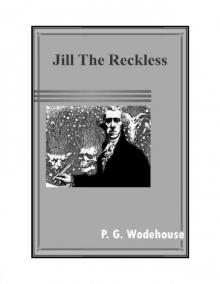 Jill the Reckless
Jill the Reckless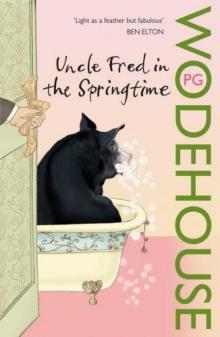 Uncle Fred in the Springtime
Uncle Fred in the Springtime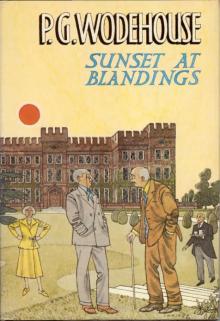 Sunset at Blandings
Sunset at Blandings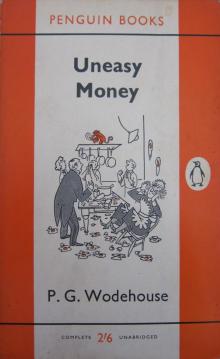 Uneasy Money
Uneasy Money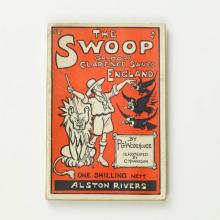 The Swoop! or, How Clarence Saved England: A Tale of the Great Invasion
The Swoop! or, How Clarence Saved England: A Tale of the Great Invasion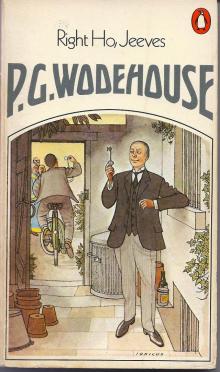 Right Ho, Jeeves
Right Ho, Jeeves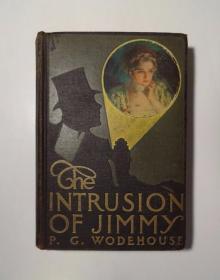 The Intrusion of Jimmy
The Intrusion of Jimmy The Jeeves Omnibus - Vol 1:
The Jeeves Omnibus - Vol 1: Aunts Aren't Gentlemen:
Aunts Aren't Gentlemen: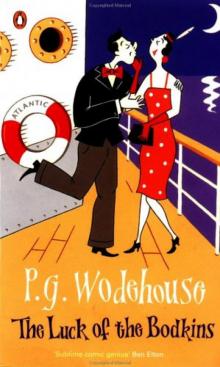 The Luck of the Bodkins
The Luck of the Bodkins The Little Nugget
The Little Nugget Money for Nothing
Money for Nothing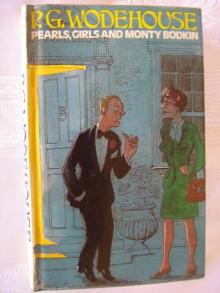 Pearls, Girls and Monty Bodkin
Pearls, Girls and Monty Bodkin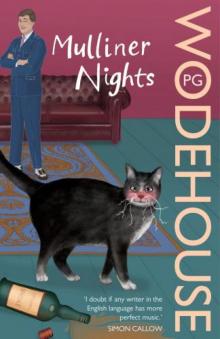 Mulliner Nights
Mulliner Nights Blandings Castle and Elsewhere
Blandings Castle and Elsewhere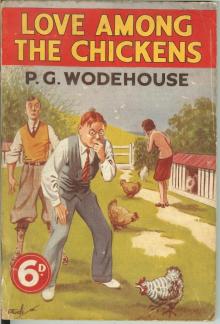 Love Among the Chickens
Love Among the Chickens Carry On, Jeeves!
Carry On, Jeeves!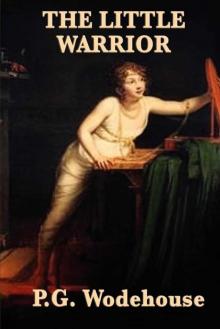 The Little Warrior
The Little Warrior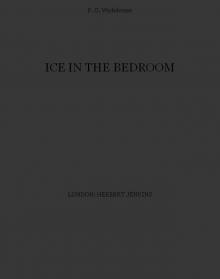 Ice in the Bedroom
Ice in the Bedroom Leave It to Psmith
Leave It to Psmith Thank You, Jeeves:
Thank You, Jeeves: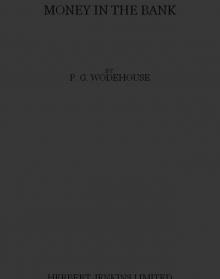 Money in the Bank
Money in the Bank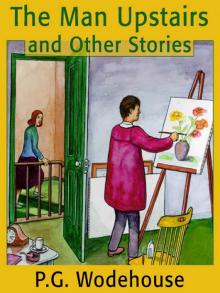 The Man Upstairs and Other Stories
The Man Upstairs and Other Stories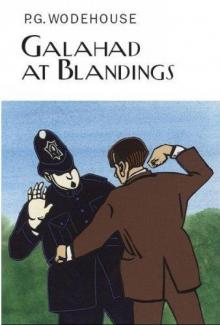 Galahad at Blandings
Galahad at Blandings The Jeeves Omnibus Vol. 5
The Jeeves Omnibus Vol. 5 Uncle Dynamite
Uncle Dynamite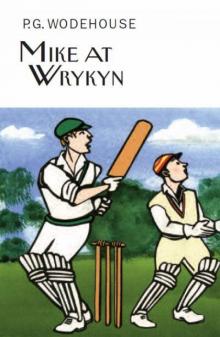 Mike at Wrykyn
Mike at Wrykyn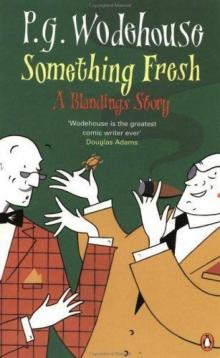 Something Fresh
Something Fresh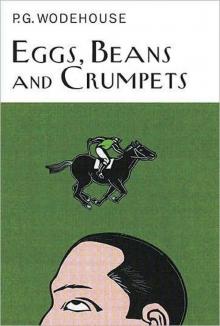 Eggs, Beans and Crumpets
Eggs, Beans and Crumpets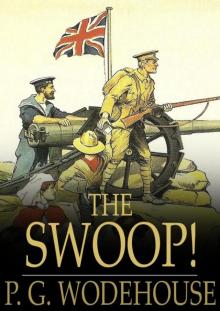 The Swoop: How Clarence Saved England (Forgotten Books)
The Swoop: How Clarence Saved England (Forgotten Books)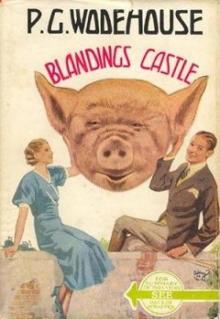 Blanding Castle Omnibus
Blanding Castle Omnibus Wodehouse at the Wicket: A Cricketing Anthology
Wodehouse at the Wicket: A Cricketing Anthology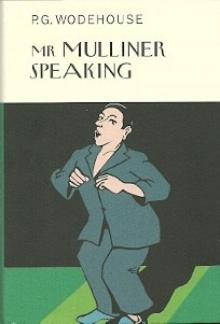 Mr. Mulliner Speaking
Mr. Mulliner Speaking Hot Water
Hot Water The Jeeves Omnibus - Vol 3: The Mating Season / Ring for Jeeves / Very Good, Jeeves
The Jeeves Omnibus - Vol 3: The Mating Season / Ring for Jeeves / Very Good, Jeeves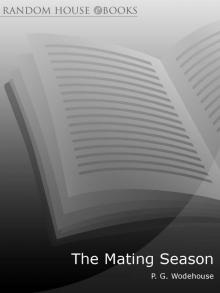 The Mating Season
The Mating Season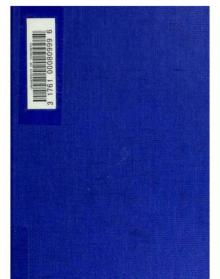 Meet Mr. Mulliner
Meet Mr. Mulliner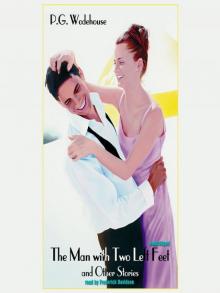 The Man with Two Left Feet, and Other Stories
The Man with Two Left Feet, and Other Stories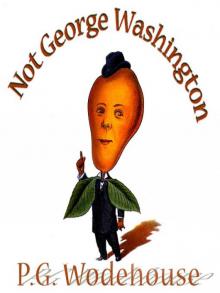 Not George Washington — an Autobiographical Novel
Not George Washington — an Autobiographical Novel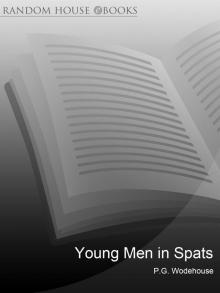 Young Men in Spats
Young Men in Spats The Jeeves Omnibus Vol. 4
The Jeeves Omnibus Vol. 4 A Pelican at Blandings:
A Pelican at Blandings: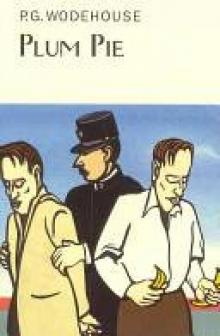 Plum Pie
Plum Pie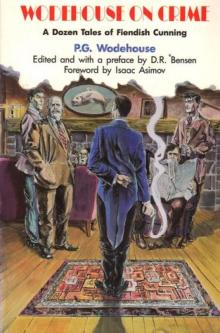 Wodehouse On Crime
Wodehouse On Crime The Jeeves Omnibus Vol. 2: Right Ho, Jeeves / Joy in the Morning / Carry On, Jeeves
The Jeeves Omnibus Vol. 2: Right Ho, Jeeves / Joy in the Morning / Carry On, Jeeves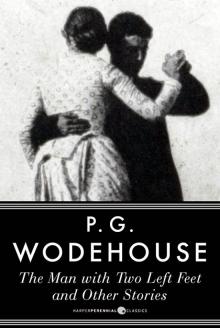 The Man With Two Left Feet
The Man With Two Left Feet Full Moon:
Full Moon: Jeeves and the Feudal Spirit:
Jeeves and the Feudal Spirit: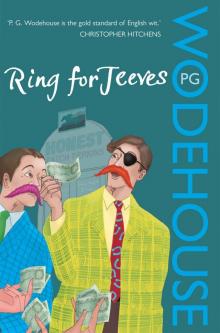 Ring For Jeeves
Ring For Jeeves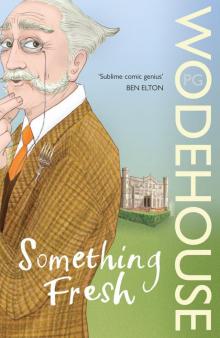 Something New
Something New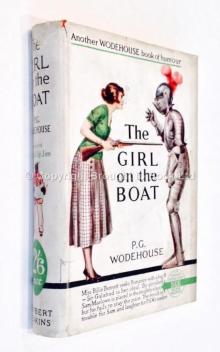 The Girl on the Boat
The Girl on the Boat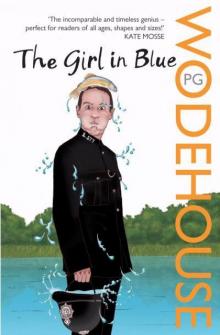 The Girl in Blue
The Girl in Blue Pigs Have Wings:
Pigs Have Wings: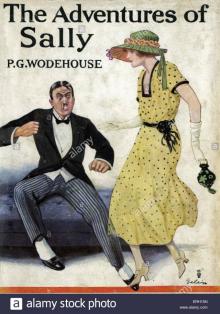 The Adventures of Sally
The Adventures of Sally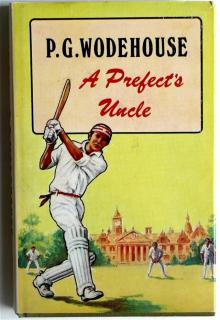 A Prefect's Uncle
A Prefect's Uncle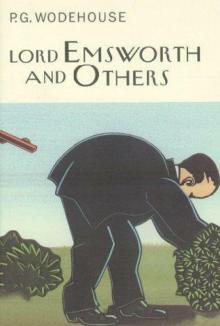 Lord Emsworth and Others
Lord Emsworth and Others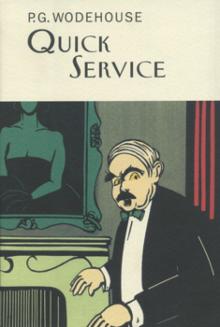 Quick Service
Quick Service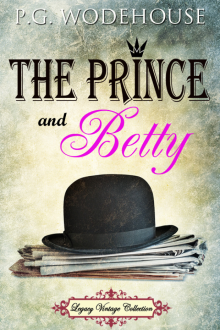 The Prince and Betty
The Prince and Betty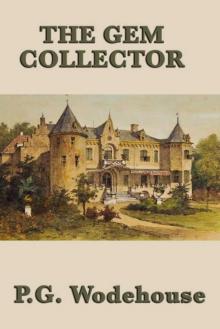 The Gem Collector
The Gem Collector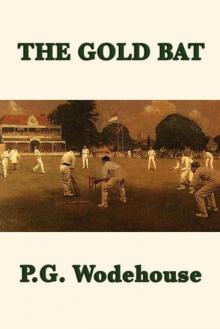 The Gold Bat
The Gold Bat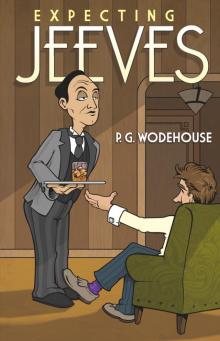 Expecting Jeeves
Expecting Jeeves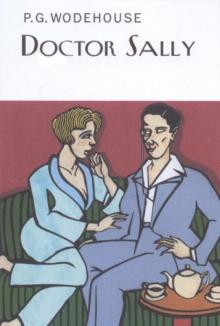 Doctor Sally
Doctor Sally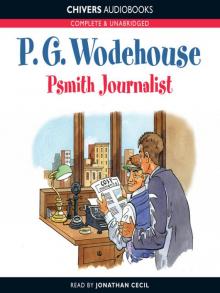 Psmith, Journalist
Psmith, Journalist The Golf Omnibus
The Golf Omnibus Heavy Weather
Heavy Weather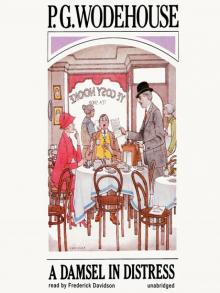 A Damsel in Distress
A Damsel in Distress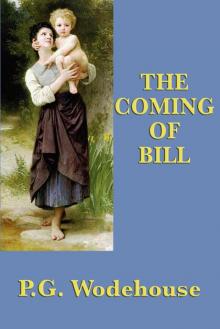 The Coming of Bill
The Coming of Bill Summer Lightning
Summer Lightning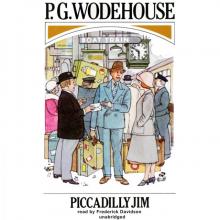 Piccadilly Jim
Piccadilly Jim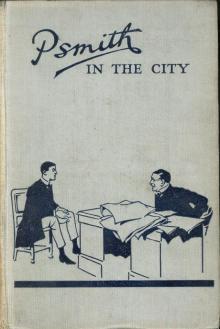 Psmith in the City
Psmith in the City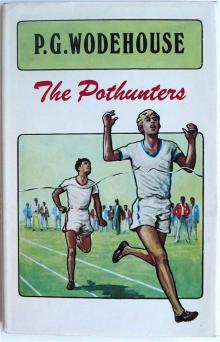 The Pothunters
The Pothunters Service With a Smile
Service With a Smile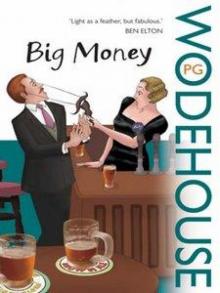 Big Money
Big Money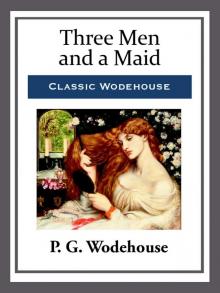 Three Men and a Maid
Three Men and a Maid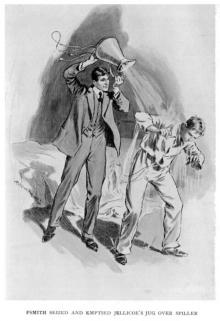 Mike and Psmith
Mike and Psmith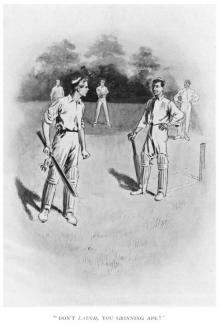 Mike
Mike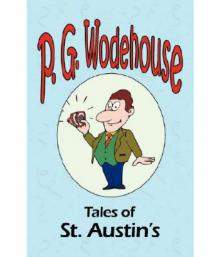 Tales of St. Austin's
Tales of St. Austin's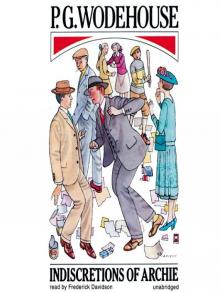 Indiscretions of Archie
Indiscretions of Archie Pigs Have Wings
Pigs Have Wings The Jeeves Omnibus - Vol 4: (Jeeves & Wooster): No.4
The Jeeves Omnibus - Vol 4: (Jeeves & Wooster): No.4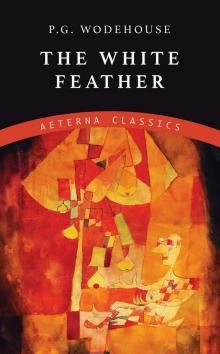 The White Feather
The White Feather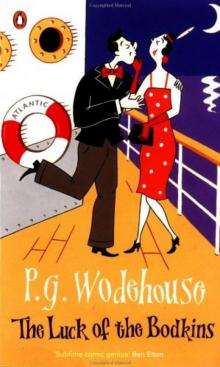 Luck of the Bodkins
Luck of the Bodkins THE SPRING SUIT
THE SPRING SUIT Full Moon
Full Moon Very Good, Jeeves
Very Good, Jeeves Thank You, Jeeves
Thank You, Jeeves Reginald's Record Knock.
Reginald's Record Knock. Wodehouse At the Wicket
Wodehouse At the Wicket LADIES AND GENTLEMEN V. PLAYERS
LADIES AND GENTLEMEN V. PLAYERS The Jeeves Omnibus - Vol 5: (Jeeves & Wooster)
The Jeeves Omnibus - Vol 5: (Jeeves & Wooster) The Jeeves Omnibus - Vol 1: (Jeeves & Wooster): No.1
The Jeeves Omnibus - Vol 1: (Jeeves & Wooster): No.1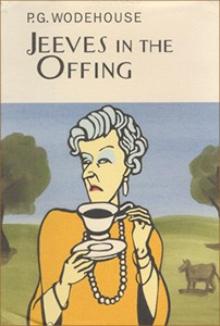 Jeeves in the offing jaw-12
Jeeves in the offing jaw-12